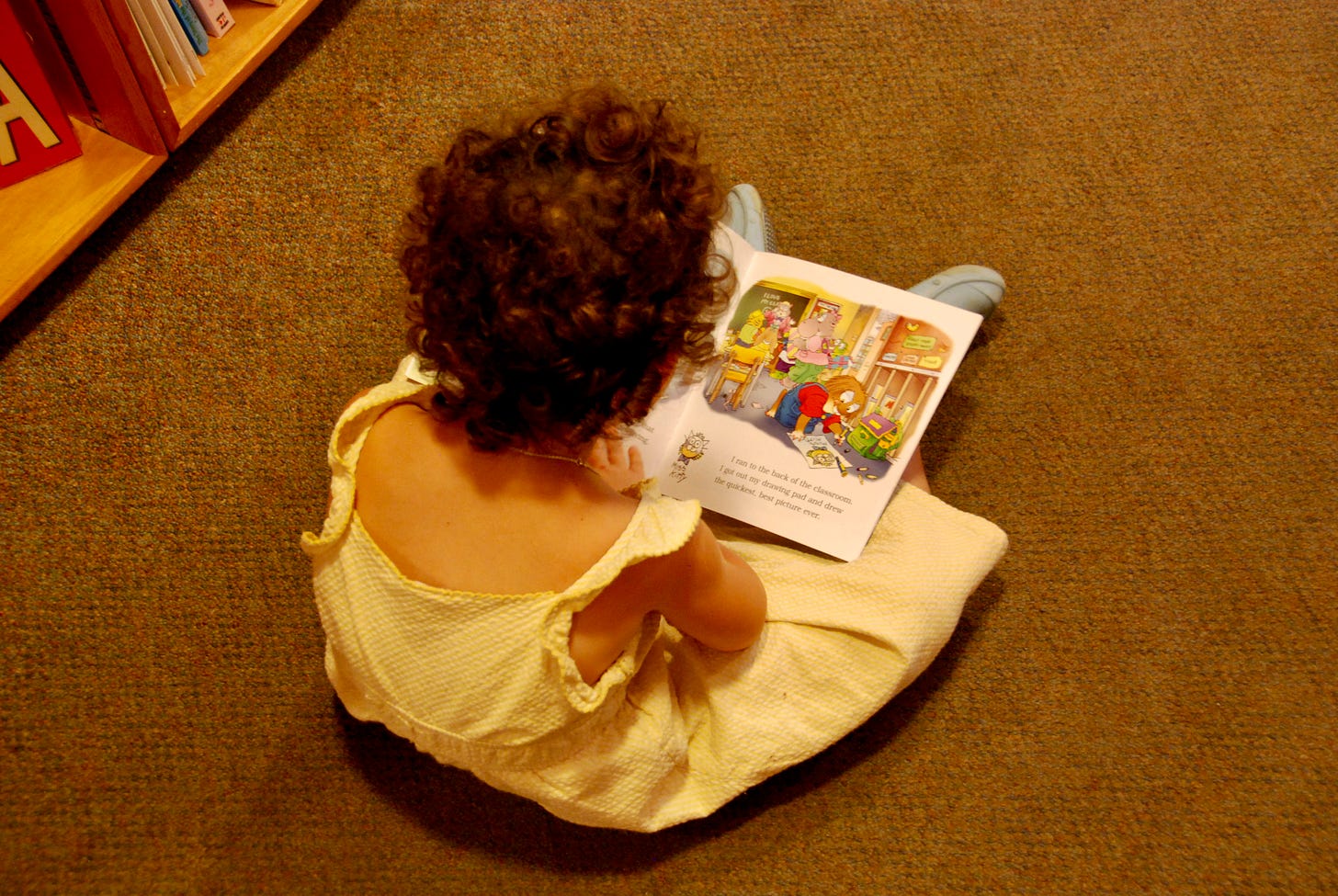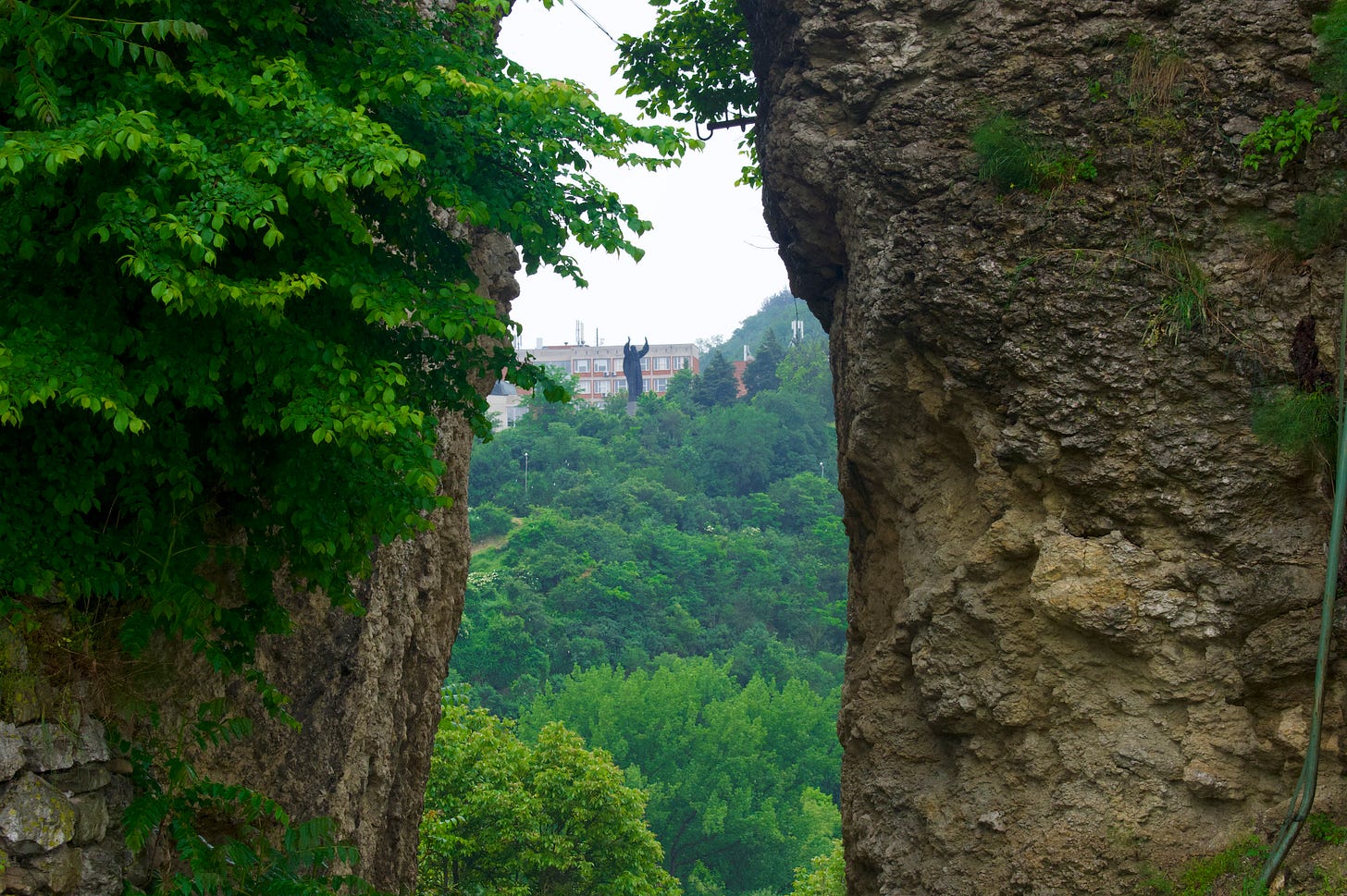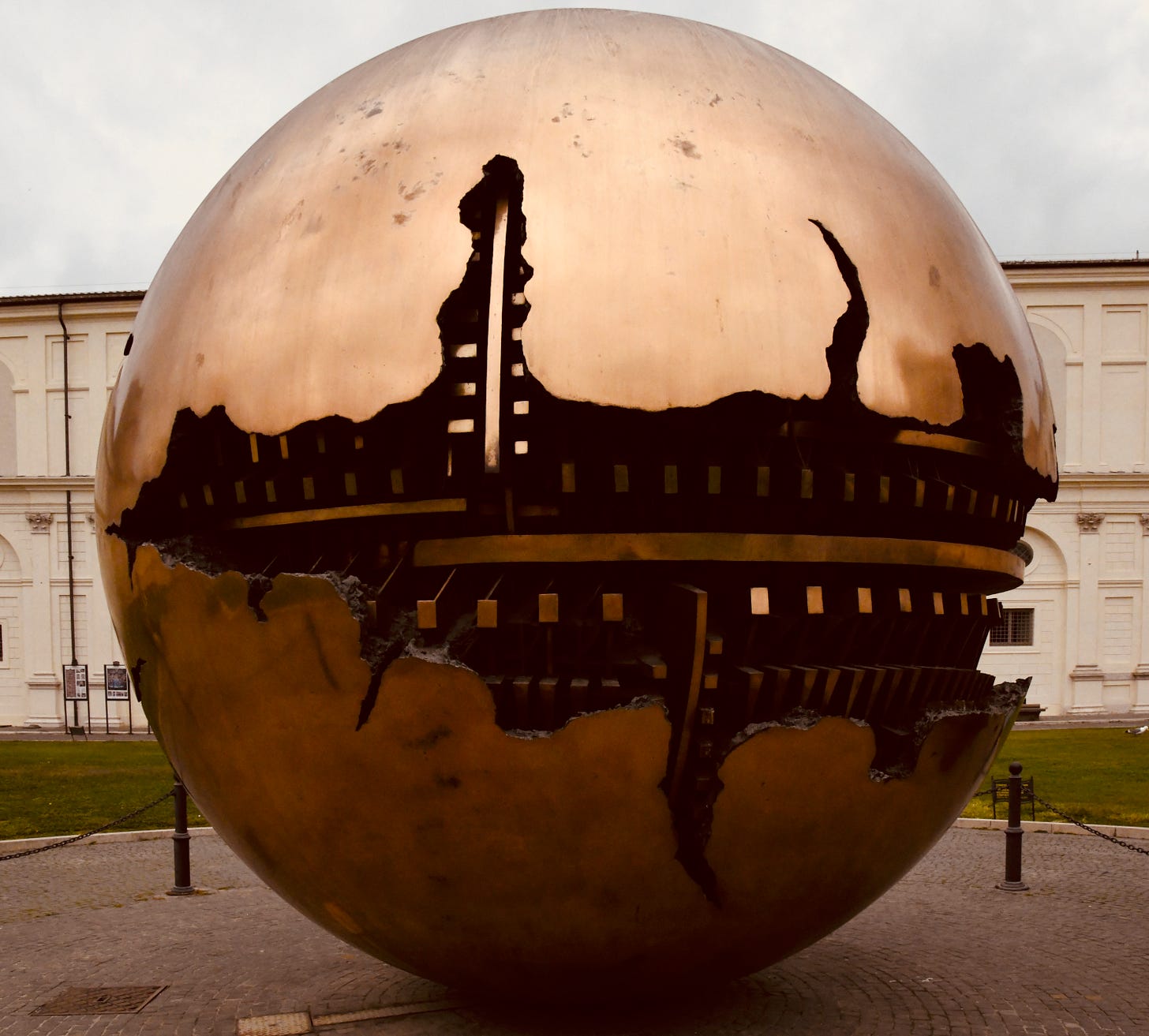Unlearning (More musings from the Un)
The cultivation of an open mind opens us to experiencing life as teacher.
Before being willing to attempt to unheal the self or another, one has to be open to unlearning. Unlearning is the process by which we forget what we know and allow life to teach us new lessons. Unlearning is a breaking down of the ego, disseminating between the known, the useful, the useless, and the identity. A curious mind seeks to learn and grow within the relational paradigm of life not ego. Aging by building a foundation of known reality into being can at points be alive, but too easily creates a concrete stuckness that eventually leads to a life of mind, not body. Treating what we think we know with a beginner’s mind allows us to mature, grow, and live.
Audio Version
Unlearning remembers the importance of questioning what life is asking us to know in the present moment. It also invites us to remember that the magical aspects of life come through in what is unknown and unexperienced previously. How often do we see suffering, disease, a repetitive negative experience, or even a repetitive thought as a reason to look at what we don’t know or notice something new? Moments in time that are meaningful happen when we let something new arise within us or around us. Keeping mental blinders on life traps us in a holding pattern that often feels safe but just as often is missing a sense of ordinary eros.
Obviously it is not often that we actively engage in unlearning. We keep trying to learn new things and forget to let go of what we have learned. Some of what has been learned no longer serves our current life. Some of what we have learned holds us back from a more alive life. A lot of what we have learned prevents us from moving forward into the life we want. The default in this thought process is that we then need to learn new things. Rarely do we consider the need to let learned things go.
How do we get there?
There are a few different ways to access unlearning. One is to actually learn new things with a caveat. Take what is being learned and trust yourself to compost the learning process. Consider this process a form of inner authority check in, of making something move from learned to necessary. What aspect of what is being learned feels right to the core self, inherent to its nature, and what may need to be discarded?
This is part of the reason that we are innundated by self help books, courses on life fulfillment, coaching, and advice. So much of what is being said is not actually coming into the core self. It is being put in as a have to, want to, or just for now kind of in the moment experience. Kind of like, “Oh yes, I can be in the moment right now”…but what about two weeks from now when there is actually a need to be in the now? Will this momentary reality of learning be a thought, a mind experience, or so deeply a part of self that going into the learned way of being is inevitable?
Unlearning understands that there is a fluid aspect to the way we assimilate what we are learning. Everything that is learned can be held onto. Everything that is learned can also be let go.
The more science discovers about our reality the more unknown is acknowledged. Life is similar this way. The purpose of learning is actually not to put things into a concrete way of being. Learning to assimilate, discern, make something our own, allow it to shift our life without getting so attached that we can’t learn something new is the reason to unlearn. In spiritual work it is said that the familiar path is never a path of the learned. Spiritual warriors need to learn how to have a new path open up. Learning how to do this happens in the realm of processing into the uncomfortable places that feel vulnerable, risky, terrifying, or undiscovered.
Any situation we are in, no matter how simple or complex, in which we engage ourselves as who we know ourselves to be is a lost opportunity.
We can choose so many options of new self - subtle or loud. A subtle change may reflect engaging with other people by simply holding your shoulders back or opening to tilting your hips forward. Simple as that, you could feel a different energy as you engage. The point is that you are making a choice to engage differently, feel yourself differently, and be different. The self sabotage mind may want you to engage in a new way as a completely different person. Honestly these forms of large change without the grounding of body, soul, and familiar patterning often do more harm than good. We need to ease into change. Small challenges to simply be a bit differently than who we are by default shows a willingness to allow life to teach, not just engage in ego and mind.
Open Mind Leading to Open Body
To unlearn begins with an open mind. Our experiences in life exist to teach us how to come back to our core self with connection and love. Without the ability to unlearn, we miss the lessons in life and what these have to offer us. More important, our mind hijacks interactions and we neglect to notice the possibilities that abound from interacting with the world around us.
The filter of our own mind is a dangerous place to interact in without balance. Of course,, we are human. We are inevitably going to interact mind to mind. We are always going to have moments in which we get stuck in the mind and can’t get out. There is a balance of knowing when that is a handicap, a missed opportunity, or a shutting down versus when the mind is actually necessary. A mind to mind conversation when my car is broken down on the side of a road and I am trying to fix it is totally necessary. A mind to mind conversation when someone is sharing themself to me in a deep way is not so necessary. If I am attempting to keep the experience an act of the mind, I am neglecting both of our souls.
Maintaining an open mind is a process of awareness. We must be able to observe our own curious listening and how this points to receptivity of more than the mind. Receptive shifts are observed in the ability to remain open and engaged. This can be felt through body processing instead of mind processing - sensing with the body and experiencing more than just thoughts. To awaken the body and engage in open body communication awareness has to shift from open mind states into embodiment states of being.
The breathe supplies answers. Body sensations provide information. Emotions have permission to flow.
When we start to feel a conversation with our bodies, we have gone from an open mind to an open body. Of course there is a need to make a choice. Without a conscious choice to leave the mind behind and breathe into the body, it is nearly impossible to be aware of anything but the mind and our recycled emotional responses. We need to choose to listen and observe with an open attitude and spaciousness instead of through the learned, and much easier, filter of mind. Allowing emotion to flow through a self that is different than normal or perhaps even not the emotion of self is a choice.
There is a state we can enter in which we are dreaming with another person. This state melds realities to allow unconscious expression to flow into conscious expression. This state cannot be entered using the known or the thought mind. Letting the self partially become another shows an ability to trust and feel with or on behalf of another. Can you imagine unlearning so much that another’s unlearned self can be experienced in your own body?
Willingness to unlearn, to become an unknown.
To embrace transformation, we have to step out of what we know. Healing only happens in the unknown. And we cannot know the unknown. We cannot learn it. We need to experience it and embody it. An open mind is quiet. It has space. It may even instinctually understand that the busy mind is only serving to keep itself intact.
Spiritual and transformational scriptures, writings, poetry, and wisdom exist to get us out of the known mind. Yet how exactly are we supposed to live lives with families, friends, jobs, responsibilities and not become walking minds? I like to talk about how easy it is (relatively) to transform on a mountain top or in a cave with all basic needs being taken care of. The kind of quiet experienced after days alone in nature happens organically. Ah ha moments with the self and the universe have a kind of flow when quiet exists and basic needs are met. That kind of spiritual life is sadly no longer available to us in the modern world.
For us ordinary people, our basic needs are not taken care of while being given space to seek enlightenment. We have to take care of our selves. This means we have to exist in the ordinary world. So many of us crave and need spiritual experiences anyway. It is easy to become a retreat addict, spending money to go away from real life, have all necessities covered, and pay a teacher to lead a transformational process. I love these kind of retreats. But we still come back to life. To our self. To responsibility. To the ordinary.
The ordinary is hard. It challenges us to find something extraordinary inside it. The nature of humans is that we don’t do that very easily or well. We are more likely to get stuck in routine and miss any positive magical or transformational experiences that may be available to us. We pay more attention to the negative and loop into it.
We forget that we are put here to have spiritual experiences as ordinary humans.
Learning how to do this and cultivating it is life changing. What’s the first step?
Opening to possibility.
There are so many moments we miss in life. We buckle down and function. We judge. We get lost. We feel overwhelmed. We forget life is a journey and try to make it a series of achievements and goals being met. Every once in a while something presents itself as an invitation to deviate off of this path. Perhaps it is through a windfall or chance meeting, a fate. Yet honestly, the normal way that we open to possibility is through repetitive negative experiences or problems that we feel like we need to overcome and heal in order to have some new goal to meet or some new state of being to reach. The cycle is pretty toxic. Striving, trying, pushing, fighting, this is all so exhausting. They put us in tunnel vision. We miss life while feeling like incredibly active participants in life. It is no wonder so many people are depressed and seeking an escape. A life with such a push to be other than the self is inevitably going to lead to dissatisfaction.
Then there is the story we tell ourselves about changing this pattern through a commitment towards opening to possibility. Most of us are going to default into some sort of negative drama induced victimhood about how hard this process is. We tell ourselves the story to put ourselves back into our comfortable box of striving to be different than who we are. Opening to possibility does not mean work. Yet so often that is exactly how we want to view it. We may want everyone else in our lives to do it with us or say if other people close to us don’t do it than why should we. We make ourselves into the only person that is trying so that we have an out just in case this opening to possibility stuff actually works and we have to change something about the comforts we have in life. We create a conundrum that closes us off to possibility and puts us right back into the hamster wheel of the ordinary life.
Perhaps opening to possibility needs to be felt as an intention and commitment that is meant to change us. We need to trust change. Uh oh. That’s hard. I feel the hamster wheel starting to churn. All the attachments - money, partnership, home, responsibilities, addictions, friends, self identifications, and idealizations - and there are so many of them, become really important. We immediately latch on to possibility as changing only in the ways we don’t want to change. This is one more attachment to negativity. Why do we believe that to change we have to lose something we are attached to? Why can’t change mean having more, not less? And why can’t we trust change that does threaten these attachments as necessary to open to the possibility of a richer and more fulfilled life?
The answers to these questions point to some key images and beliefs that completely prevent us from allowing the change we want in life to come into our bodies and create itself. We have to see change as its own creator. We have to trust it. We need to understand that while letting go, chaos, and even hard work may be part of initial change. The end result is worth it. The greatest possibility happens in change that occur in small doses. A willingness to meet life differently and actively without fantasies and grand expectations shows more of a desire for change. Grandiosity actually shows an immaturity, a desire for a quick fix without taking active self responsibility.
When we decide to change something and truly desire it, we willingly and actively will choose to make a change no matter what. Excuses become just what they are, excuses. They stop becoming reasons to engage in a negative pattern. Calling ourselves out and actively choosing something different, especially in small ways points to a maturity in thought and action. We want to actively take part in change instead of wanting change to happen to us without doing anything.
Every time you make an action step towards the change you want, you are saying “Yes” towards yourself. This is especially true if the change you are moving towards feels scary, vulnerable or edgy.
When you make change that feels familiar and unfamiliar at the same time, you are stepping sideways. Sometimes we need this. Sometimes this side step is different enough that the change we want becomes more clear. Sometimes the side step we take has a little flavor of the vulnerability we need to embrace. Sometimes another door opens only because of the willingness to just slightly break out of a pattern. Being patient with slow change and open to the subtleties that happen within it are all important aspects of embracing the opportunities available in a life that you are living instead of a life that is being endured.






